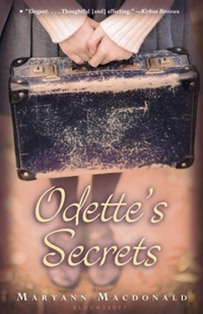 This coming Sunday evening, April 7, marks the beginning of Yom HaShoah, Holocaust Remembrance Day. Jews around the world will place candles in their windows and recite prayers to remember the six million Jews who died between 1933 and 1945 at the hands of the Nazis and their collaborators, as well as the others who died—among them leftists, trade unionists, Roma, LGBT persons, and persons with disabilities. When Jewish families remember the Holocaust, it is always a challenge to present the horror of that time to the children in an age-appropriate way.
This coming Sunday evening, April 7, marks the beginning of Yom HaShoah, Holocaust Remembrance Day. Jews around the world will place candles in their windows and recite prayers to remember the six million Jews who died between 1933 and 1945 at the hands of the Nazis and their collaborators, as well as the others who died—among them leftists, trade unionists, Roma, LGBT persons, and persons with disabilities. When Jewish families remember the Holocaust, it is always a challenge to present the horror of that time to the children in an age-appropriate way.
One of my favorite picture books to do this is Meg Wiviott’s 2010 title Benno and the Night of Broken Glass (KarBen), which presents the roundup of Jews from a building in Berlin, Germany from the eyes of a cat. The story is appropriate for readers in second grade and up. For stronger readers of that age and older, there is now a brand-new option—a middle grade novel in verse based on the memoir of a French Holocaust survivor, Odette Meyers, who hid with her mother in the countryside from age eight to eleven.
The author of Odette’s Secrets, Maryann Macdonald, read Meyers’s autobiography in French and worked with Meyers’s son, Daniel, to turn it into a beautifully written and powerful story for young readers in the United States. Odette is not yet six years old when her father enlists in the French Army following Hitler’s invasion of Poland in September 1939. A year later, Hitler invades France, and Odette’s father becomes a prisoner of war. In the two years that follow, the girl, her mother, and the kindly landlord’s family endure material deprivation and the loss of their freedoms. Although Odette’s parents are not religious, they are Jews, so when soldiers come looking for them, they hide, first in the landlord’s closet and then in a rural village. There, Odette and, some months later, her mother, learn to live like country folk—without the luxuries of their Paris life but also with enough food and, as a result of a courageous act by the village mayor, with a modicum of safety. Odette becomes so accustomed to the rhythms and tasks of country life that return to the city comes as an unwelcome shock, one compounded by the absence of old friends who did not survive.
Macdonald does a fine job of presenting the story from a child’s point of view, and as an adult reader I found most fascinating what she leaves unsaid—that Odette’s parents are leftists. After her father is captured, her mother becomes part of the Resistance, and her underground network plays a major role in her and Odette’s survival. In this story, those who acquiescence to oppression do not survive, while resistance (especially as part of a community) significantly raises the odds of both survival and victory. The village mayor, for instance, is a member of the Resistance, which leads to his courageous defense of the mother and child. In general, I’ve found a lack of children’s books published originally in the United States that present protagonists as part of a larger community in a conflict or struggle—the emphasis seems to be on the protagonist’s individual conflict only. Odette’s Secrets successfully does show a protagonist within a community, but in an age appropriate (and politically neutral) way, and in a way that presents her personal desires, conflicts, actions, and maturation within that larger context.
4 comments for “Hiding in Plain Sight: A Review of Odette’s Secrets”